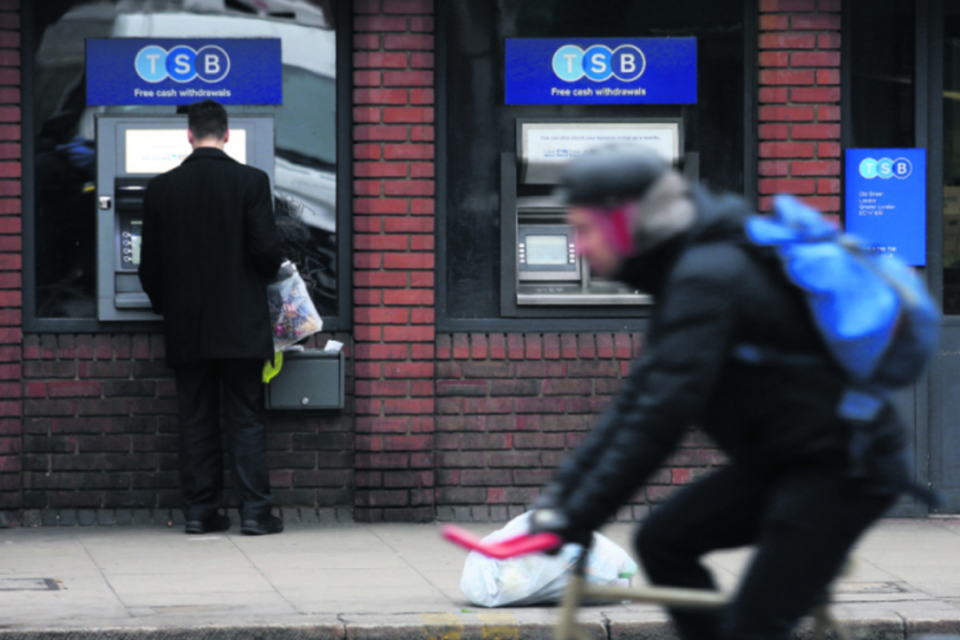

A potential sale of TSB Bank is back in focus as its Spanish parent company, Sabadell, grapples with a rare hostile takeover attempt by larger domestic rival BBVA.
BBVA took its €12.2bn (£10.5bn) all-share merger proposal directly to shareholders earlier this month after Sabadell’s board rejected its initial approach.
If it were to succeed in buying Sabadell, the future of TSB would be in question, given the two lenders’ differing strategies in the UK.
BBVA, the eurozone’s second-largest lender behind Santander, has a much more limited presence in the country, holding a large stake in app-based Atom Bank.
“TSB is a relatively small piece in the puzzle, but it is an added complexity for BBVA, who ultimately do not want the asset due to its size within the UK market,” Benjamin Toms, an analyst at RBC Capital Markets, told City A.M.
There are immediate incentives for BBVA to offload the business. Although the bank has said it has “no room” to improve the economic terms of its offer, analysts at Barclays have argued that it could raise its bid by selling TSB.
They said the move would “allow BBVA to include a cash element of up to 10 per cent of the offer” and that it would have a “limited” impact on BBVA’s Common Equity Tier 1 capital if the sale were in line Nationwide’s recent deal for Virgin Money.
In a call with analysts earlier this month, BBVA’s chief executive Onur Genç said it was “too early to tell” whether it would keep TSB if it succeeded in its takeover attempt.
“We can only respect what Sabadell has at the moment,” he added. “They are a franchise that we admire, that we like, and TSB is part of that. But the decision will be taken in due time.”
Dealmaking frenzy
Speculation comes as a wave of consolidation sweeps through the UK’s mid-sized banking sector. Virgin Money, The Co-operative Bank and Tesco Bank have all agreed tie-ups with rival domestic lenders this year.
TSB has roughly five million customers and a £36bn loan book. Its 211-strong branch network is the seventh-largest in the UK.
Like its peers that are up for sale, the bank has dealt with cost pressures and a lack of scale compared to Britain’s biggest lenders.
Earlier this month, TSB confirmed it would cut around 250 jobs and close three dozen branches to reduce costs and shift to digital services.
Sabadell has previously considered selling TSB but rejected an offer from Co-op Bank in 2021.
The following year, Sabadell CEO Cesar Gonzalez-Bueno denied the bank was up for sale amid further bidding interest, adding that he was “pleased that there are initiatives to buy [TSB] because it means that the bank is doing well”.
Nationwide and Metro Bank have recently been mentioned as potential bidders. The former is busy finalising what stands to be the UK’s biggest banking merger since the financial crisis, while Metro Bank last year came under the ownership of a Colombian billionaire with a penchant for picking up struggling lenders.
“There are no natural bidders for TSB in our view as banks generally do not want to add bricks and mortar branch networks to their balance sheet,” Toms said. “Although we would see Natwest as the path of least resistance.”
While City A.M. understands Sabadell is not currently considering selling TSB, it is now under greater pressure to justify its ownership of an overseas bank.
TSB was founded in 1810 as the Trustee Savings Bank and merged with Lloyds Banking Group in 1995. It was divested following the financial crisis and bought by Sabadell for £1.7bn in 2015.
In 2018, TSB’s new ownership hit turbulent waters after an IT meltdown triggered by an attempt to move customer data to Sabadell’s new computer system.
The incident hurt TSB’s public image, triggered the departure of its then CEO Paul Pester and eventually saw the bank fined nearly £49m by the Financial Conduct Authority in 2022.
Will BBVA succeed?
A person familiar with the matter told City A.M. that Sabadell believes BBVA’s hostile takeover attempt is unlikely to receive majority approval among its shareholders partly because they include many retail investors.
However, RBC believes it is “more likely than not that BBVA will be successful in executing this transaction”, Toms said.
“The biggest hurdle is probably the Spanish Competition Commission,” he added. “However, whilst they might impose modifications to the strategic plan, we do not believe that they will block the deal.”
The European Central Bank, which would have to authorise any deal, is reportedly supportive of a potential merger – with the view that Sabadell’s focus on Spain and BBVA’s large presence in emerging markets would make the combined group diversified.
However, the Spanish government has opposed the hostile takeover, with economy minister Carlos Cuerpo saying a tie-up would have harmful impacts for Spain’s financial system.
The ministry has legal powers to block banking mergers and has six months to decide after consulting with regulators. Sabadell has already accused BBVA of breaking rules over how companies make tender offers by introducing “incomplete information that may affect the market”.
“By the time that the Spanish government gets to opine on the merger, it will be at such a late stage that scuppering the deal will be difficult,” Toms noted.





